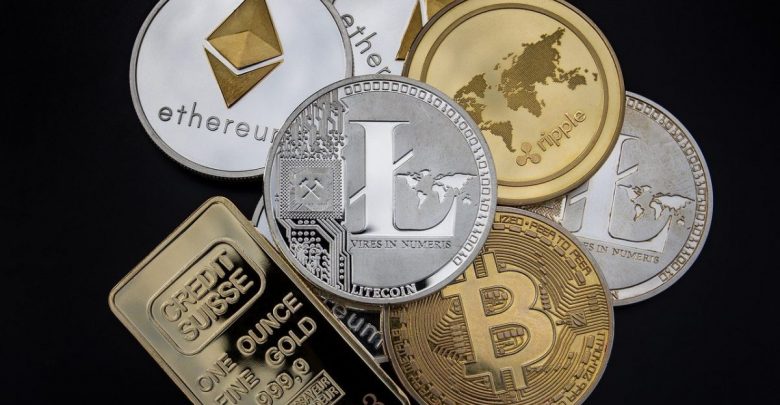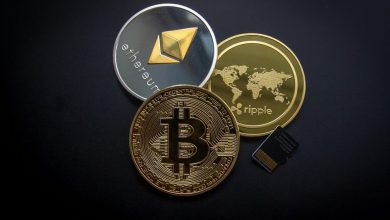Litecoin for Peer-to-Peer Transactions: Benefits & Future

Whether you are a merchant looking for a reliable payment method or a consumer seeking more control over your finances, Litecoin has much to offer. In this article, we will explore the benefits of Litecoin for peer-to-peer transactions, and what the future may hold for this innovative cryptocurrency. So, if you are a newbie and planning to trade Bitcoin, you may also want to consider knowing about what causes Bitcoin Value to Drop.
Advantages of Litecoin for Peer-to-Peer Transactions
Litecoin offers several key advantages for peer-to-peer transactions that make it an attractive option for users and businesses alike. Firstly, Litecoin is much faster and more efficient than other cryptocurrencies like Bitcoin. While Bitcoin takes around 10 minutes to confirm a block of transactions, Litecoin only takes 2.5 minutes. This means that transactions can be processed and confirmed much more quickly, allowing merchants to receive payments faster and consumers to enjoy more seamless transactions.
Moreover, Litecoin has very low transaction fees compared to traditional payment methods and other cryptocurrencies. For example, credit card companies typically charge a percentage fee for each transaction, whereas Litecoin’s fees are typically just a few cents. This makes Litecoin a more affordable option for small businesses and international transactions, as well as for users who want to avoid the high fees associated with traditional banking.
Another advantage of Litecoin is its security and decentralization. Unlike centralized payment systems like PayPal or Venmo, which are vulnerable to hacks, fraud, and censorship, Litecoin is based on a decentralized and distributed ledger technology called the blockchain. This means that transactions are verified and recorded by a network of users rather than a central authority, making it more resistant to attacks and manipulation. Additionally, Litecoin uses secure cryptographic algorithms that ensure the integrity and privacy of transactions, making it a good option for users who value their financial privacy.
Overall, these advantages make Litecoin a strong contender for peer-to-peer transactions. Whether you are a small business owner, a frequent online shopper, or simply someone who values speed, affordability, and security, Litecoin has much to offer. In the next section, we will explore how to use Litecoin for peer-to-peer transactions, including setting up a wallet, buying and selling Litecoin, and sending and receiving transactions.
Litecoin in the Future of Peer-to-Peer Transactions
Litecoin has come a long way since its creation in 2011, and it continues to evolve and innovate in the world of peer-to-peer transactions. One of the most promising developments for Litecoin is the Lightning Network, a layer-2 payment protocol that enables faster and cheaper transactions by using off-chain channels. This means that Litecoin transactions can be processed almost instantly and with negligible fees, making it a more competitive option for micropayments and other small transactions.
Another area of potential for Litecoin is the integration with smart contracts, which are self-executing agreements between parties that are stored on a blockchain. Smart contracts can automate and enforce the terms of a transaction, reducing the need for intermediaries and increasing trust and security. While Litecoin currently does not have its own smart contract platform, it could potentially integrate with other platforms like Ethereum or EOS to offer more advanced transaction capabilities.
Finally, Litecoin has the potential to play a significant role in the future of global finance and decentralized economies. As more people around the world adopt cryptocurrencies as a means of payment and store of value, Litecoin could become a valuable tool for cross-border transactions and financial inclusion. Additionally, Litecoin’s decentralized and distributed nature makes it more resistant to geopolitical and economic shocks, offering a more stable and reliable alternative to traditional banking systems.
Of course, there are also challenges and obstacles that Litecoin and other cryptocurrencies must overcome to realize their full potential. These include regulatory uncertainty, scalability issues, and adoption barriers. However, with a strong community of developers, investors, and users, Litecoin is well-positioned to face these challenges and continue to innovate in the world of peer-to-peer transactions.
In conclusion, Litecoin has much to offer for those seeking a faster, cheaper, and more secure option for peer-to-peer transactions. With the potential for Lightning Network integration, smart contract capabilities, and global adoption, Litecoin could become an even more powerful force in the world of cryptocurrencies and beyond.
Conclusion
In conclusion, Litecoin offers a range of advantages for peer-to-peer transactions, including speed, affordability, and security. By using a Litecoin wallet and following the right steps, anyone can take advantage of these benefits and join the growing community of Litecoin users. Looking to the future, Litecoin has the potential to revolutionize the world of global finance and decentralized economies, offering a more stable, reliable, and accessible alternative to traditional banking systems.
Read Next: 10 Great Tools for VR Development



